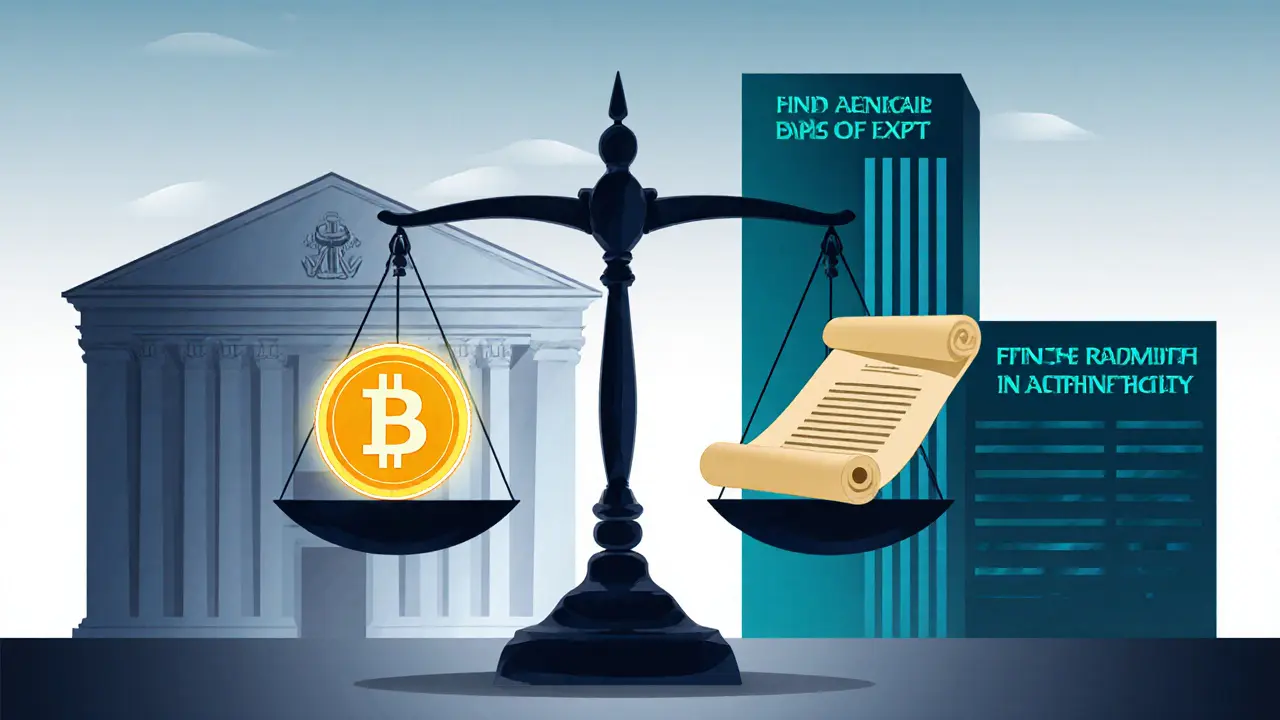Egypt Crypto Law – What It Means for Crypto Users and Businesses
When dealing with Egypt crypto law, the set of rules that govern cryptocurrency activities in Egypt, including licensing, taxation, and compliance obligations. Also known as Egyptian crypto regulation, it shapes how exchanges, wallet providers, and token issuers operate within the country. Egypt crypto law isn’t just a checklist; it’s the backbone that determines whether a project can launch, raise funds, or offer services to Egyptian users.
One major piece of the puzzle is crypto licensing, the official permission required to run a crypto‑related business, such as an exchange or a custodial service. In Egypt, the Central Bank of Egypt (CBE) mandates a specific license that covers anti‑money‑laundering (AML) procedures, capital adequacy, and reporting standards. Without this license, firms face fines or forced shutdowns. Another key component is the regulatory sandbox, a controlled environment where fintech innovators can test new products under relaxed rules before full approval. The sandbox lowers entry barriers, lets startups experiment with DeFi protocols, and gives regulators real‑time insight into emerging risks.
How These Elements Interact
Egypt crypto law encompasses licensing requirements, tax obligations, and consumer protection rules. It requires crypto businesses to register with the CBE, implement robust KYC/AML checks, and file periodic activity reports. Regulatory sandbox programs support this framework by offering a temporary exemption from some reporting duties, but only while the project is under close supervision. This creates a feedback loop: successful sandbox trials often lead to streamlined licensing pathways, while failed trials highlight gaps that the law can address.
Crypto licensing influences exchange compliance because every exchange must prove its ability to secure user funds, prevent illicit transactions, and maintain transparent accounting. In practice, an Egyptian exchange that secures a license can list both local and international tokens, attract institutional investors, and offer fiat on‑ramps. Conversely, a non‑licensed platform risks being blocked by payment processors and may see its assets frozen under the law.
At the same time, the sandbox program fuels innovation. Startups that build tokenized assets, cross‑border payment solutions, or blockchain‑based supply‑chain tools can test their ideas with reduced regulatory friction. If the CBE approves the pilot, the sandbox graduates participants into full‑scale operations, often granting them a fast‑track licensing package. This dynamic helps Egypt stay competitive in the regional crypto market while safeguarding investors.
For anyone eyeing the Egyptian market, understanding these relationships is crucial. You’ll need to map out the licensing steps, decide whether the sandbox is a viable path, and align your compliance program with the broader crypto regulation framework. Below you’ll find articles that break down each part— from detailed licensing guides to sandbox applications and exchange reviews—so you can build a strategy that works with Egypt’s legal landscape rather than against it.

Egypt Crypto Promotion Penalties: Imprisonment & Fines Explained
Apr 26, 2025, Posted by Ronan Caverly
Explore Egypt's strict crypto promotion laws, imprisonment terms, fines, and enforcement. Learn what activities are banned, how penalties are applied, and compliance tips for staying legal.
MORESEARCH HERE
Categories
TAGS
- decentralized exchange
- crypto exchange
- crypto exchange review
- crypto coin
- crypto airdrop
- cryptocurrency
- CoinMarketCap airdrop
- cryptocurrency trading
- smart contracts
- tokenomics
- DeFi
- cryptocurrency exchange safety
- crypto airdrop 2025
- cryptocurrency airdrop
- cryptocurrency exchange
- MiCA
- crypto airdrop guide
- blockchain token distribution
- crypto token
- Portugal crypto tax
